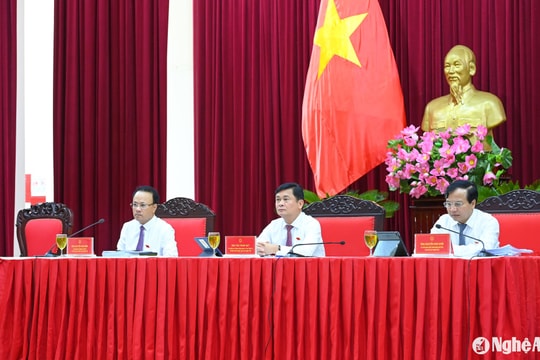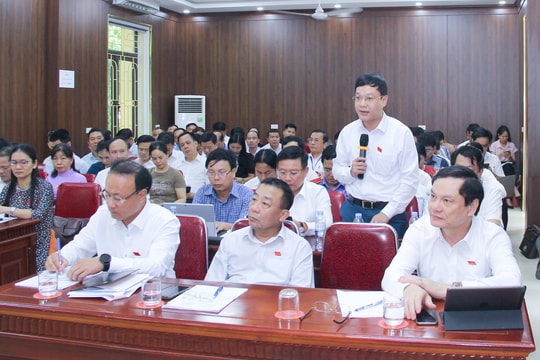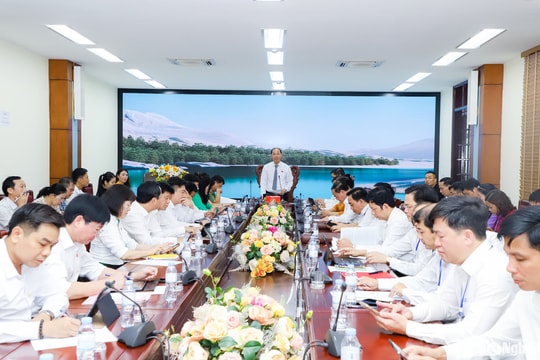Nghe An lacks more than 5,000 health workers
On the afternoon of July 10, continuing the 21st Session, the People's Council of Nghe An province, term XVIII, term 2021 - 2026, discussed in the hall.
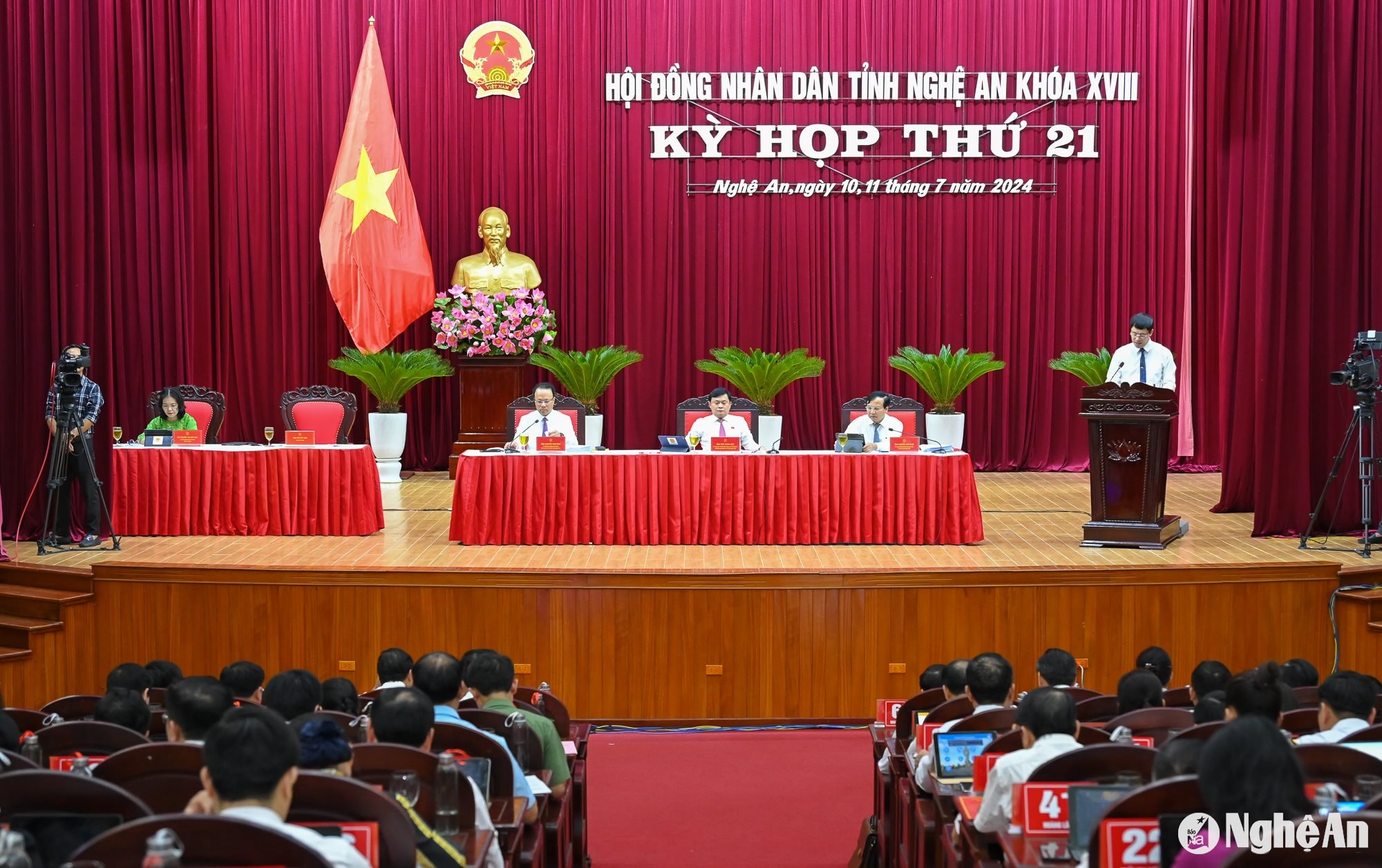
Explaining the opinions of the Provincial People's Council delegates, Director of Nghe An Department of Health Nguyen Thi Hong Hoa said that the general shortage of medical human resources at all levels, especially the shortage of highly qualified medical human resources at the grassroots level, is a reality, a challenge, and a difficulty for the health sector.
This puts pressure on the task of protecting and taking care of people's health to meet the requirements in the new situation when 6/11 infectious diseases have increased, as well as the number of people visiting medical examination and treatment facilities in the first 6 months of this year compared to the same period last year.
The Director of Nghe An Department of Health said: To meet the needs of medical examination and treatment for people, according to the plan, the number of hospital beds at medical facilities (both public and private) in the whole province is 14,651 beds, but the actual number has increased to 18,584 beds, an increase of 3,933 beds compared to the plan, equivalent to an increase of 120%.
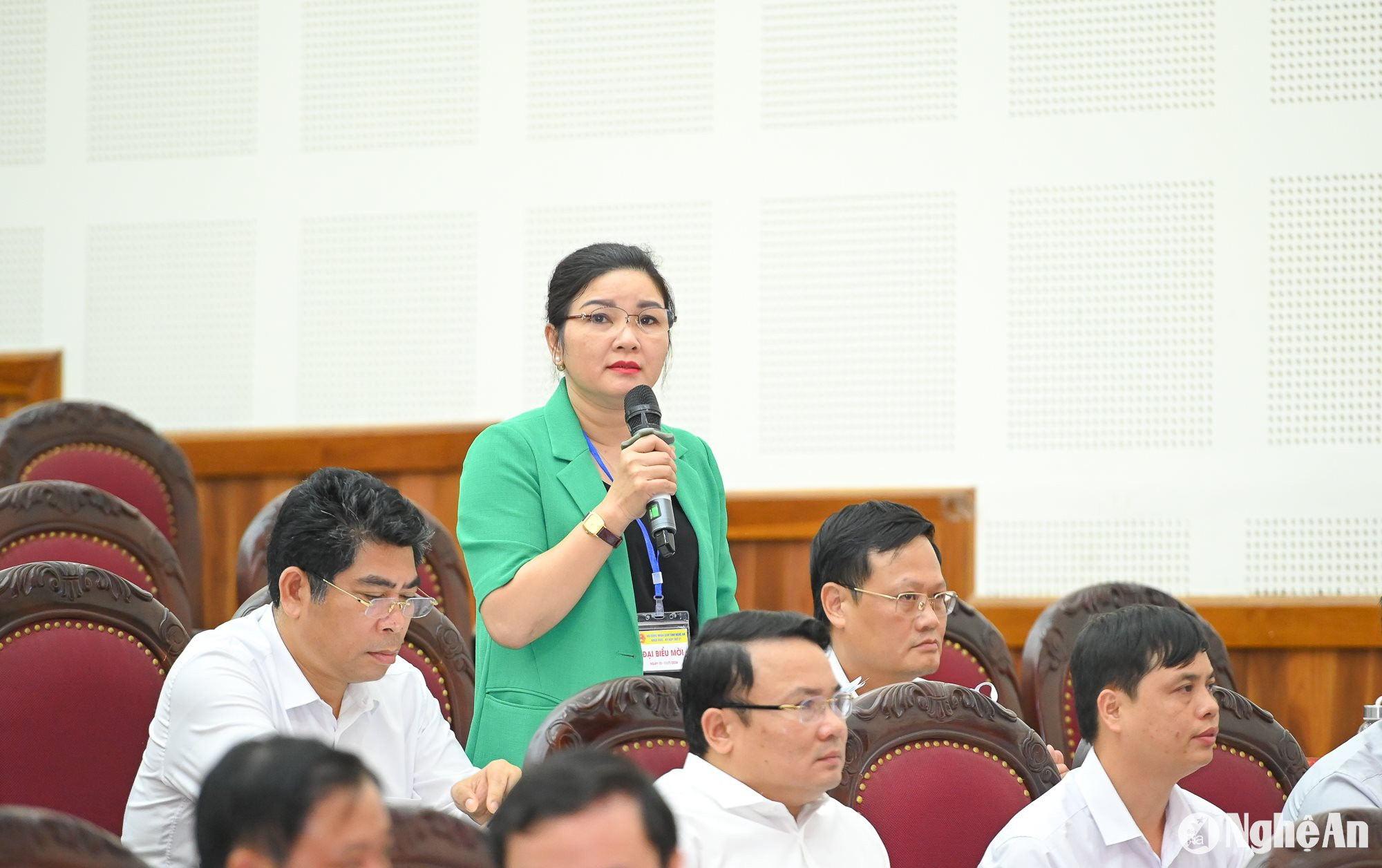
Corresponding to the regulation that 1 hospital bed must have at least 1.2 staff according to Circular 03 of the Ministry of Health, currently, in the medical examination, treatment and care sector, Nghe An Health sector is short of about 5,000 staff.
Specifically, autonomous hospital units in groups 1 and 2 are short of about 3,800 employees. As for autonomous units in groups 3 and 4 (mainly medical centers, health stations and some special hospitals), there is a shortage of 1,448 employees; however, grassroots medical units in this group still have to reduce their annual staffing quota, which puts pressure on the number of medical personnel in the industry, especially the shortage of grassroots medical staff.
Not to mention, since 2020, a large number of medical staff have moved out of the public sector, with 350 people, including 160 doctors moving out of public health facilities.
"Currently, the actual workforce of the industry is 19,426 people, of which the public sector accounts for 72.3% and the private sector accounts for 27.7%," said the Director of the Department of Health.
Of which, at the commune level, 360/460 health stations have permanent doctors; of the remaining 100 communes, 70 health stations have temporarily transferred doctors from the health center and contracted 19 retired doctors. The remaining 30 health stations currently have no doctors, so the sector must use general practitioners to perform medical examination and treatment tasks.
The Director of the Department of Health said that human resources have not met the needs of medical examination and treatment, especially the development of advanced and specialized techniques at the provincial level, as well as the requirements to improve the quality of medical examination and treatment at the grassroots level.
However, Nghe An is currently facing difficulties in recruiting and attracting human resources in the health sector, although the province has preferential policies. In 2023 alone, the province will support more than 10 billion VND for training and attraction, of which 34 cases will be attracted and 253 schools will enjoy training policies.
In that context, the leader of Nghe An Health sector said that he has linked up with 5 universities to train nursing and medical staff at hospitals.
For autonomous units, the industry encourages the allocation of resources from the autonomous part to have policies to support medical human resources at the unit to go to school in addition to the province's policy.
However, in the long term, a fundamental solution is needed. The Director of the Department of Health proposed that Party committees and authorities at all levels continue to pay attention to helping the health sector ensure resources; in which he agreed with the opinion of the Provincial People's Council delegates that a new policy should be issued to replace the old policy to attract human resources to work in the province.

.jpg)
